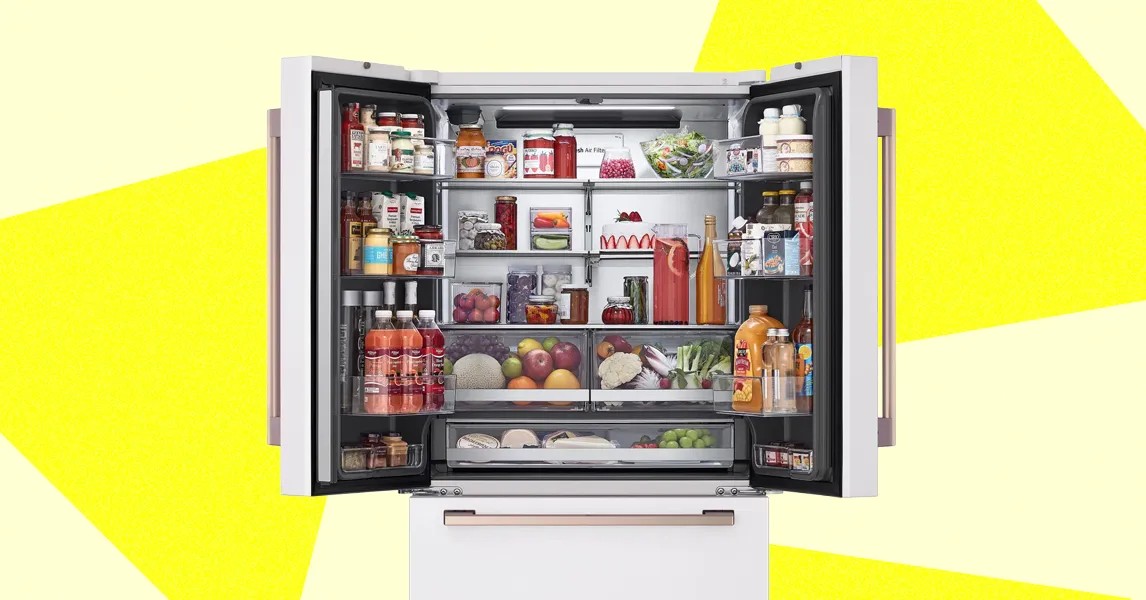LG has faced a complicated history with refrigerator reliability, particularly concerning its linear compressors. After experiencing issues with previous models, this review assesses the brand’s latest offering, the Studio Smart 3-Door French Door Refrigerator, to determine if it represents a genuine improvement. Installed in the reviewer’s home for five months, the fridge is put through the paces of daily use, with an examination of its features, design, and performance.
A History of Reliability Concerns
The reviewer’s personal experience with LG refrigerators spans 15 years. Early models were well-regarded for their combination of price and features, leading to the purchase of a second identical unit. However, a recent failure highlighted a recurring problem: faulty linear compressors. A class action lawsuit addressed this issue, but subsequent lawsuits indicate the problem persists. This raises a key question: can LG regain consumer trust after these reliability challenges?
According to data from OpenBrand, LG holds a significant share of the appliance market (one-third), second only to Samsung. However, it’s important to note that reliability issues aren’t exclusive to LG; Consumer Reports reveals that 50% of new refrigerators purchased since 2014, regardless of brand, have experienced problems. This reflects a broader trend of diminishing refrigerator reliability in recent years.
Design and Aesthetics: A Move Beyond Stainless Steel
The review focuses on the Studio line, a premium range introduced around 2015, characterized by sleek design and smart capabilities via LG’s ThinQ system. The reviewer specifically chose a Studio refrigerator in Essence White, a response to a shifting design trend away from ubiquitous stainless steel appliances.
Cabinet-fronted Sub-Zero refrigerators have long been a symbol of luxury, but until recently, non-stainless steel options for the “mass premium” market were limited. The trend toward lighter woods and colored cabinetry has created an opening for white appliances with a softer aesthetic than those from the 1980s and 90s.
Dean Brindle, LG’s head of product management, explains that Essence White is a warmer, more yellow-toned white, distinct from the traditional stark white or blue-white typically seen in appliances. The refrigerator’s sharp edges, squared bronze hardware, and matte finish contribute to a sophisticated and almost European aesthetic, comparable to brands like La Cornue or Bertazzoni.
Feature Breakdown: Capacity, Convenience, and ThinQ Integration
The Studio Smart 3-Door refrigerator boasts several noteworthy features:
- Capacity: A total capacity of 26.5 cubic feet (17.8 cubic feet for the refrigerator, 8.7 for the freezer).
- Door Filter Placement: A tall, slim water filter tucked deep in the back corner enhances fridge capacity. However, installation requires careful attention; the reviewer recommends wrenching it firmly into place.
- Door Bin Size: The lack of an ice maker in the door allows for larger door bins, a necessary feature given the relatively short shelf heights. The shelves are only 7.5 inches tall, large enough for a jar of sauce or a soda can, but not for cartons of milk, bottles of sriracha, or salad dressing.
- Interior Design: The black interior is a signature feature of the Studio line, contributing to its premium feel.
- Counter Depth: The refrigerator’s counter-depth design (24 to 30 inches) creates a built-in look.
- Glide N Serve Drawer: The Signature Glide N Serve drawer, available as a separate door on some non-Studio models, is ideal for larger, flatter items.
- Linear Cooling: LG’s proprietary linear cooling feature creates an “air curtain” to maintain consistent temperatures.
- ThinQ Smart Features: The ThinQ app allows for remote control, usage tracking, diagnostics, filter alerts, and access to features like Sabbath mode. Notably, AI-powered adaptation learns from user behavior, adjusting compressor cycles based on door opening frequency.
The Downsides: Shelf Height, Long Warranty Claims, and Persisting Questions
While the LG Studio refrigerator impresses on many fronts, some concerns remain:
- Shelf Height: The short shelf height limits storage options.
- Warranty Service: Speaking with refrigerator mechanics like Sean Murphy of Duncan Home Services highlights ongoing challenges with LG warranty claims and long wait times for repairs.
- ThinQ Monitoring: While the ThinQ’s door-opening tracking is a clever feature, some may find the constant monitoring intrusive.
A Mechanic’s Perspective and LG’s Response
Several mechanics expressed concerns about continued issues with LG refrigerators. Sean Murphy cautioned against recommending LG appliances based on the high volume of repairs seen.
Dean Brindle acknowledges the legacy of compressor issues but asserts that LG’s dealer data suggests improved reliability in recent years. He emphasizes the brand’s commitment to building long-term consumer trust and underscores the Studio model’s performance and reliability within LG’s appliance line.
The Verdict: A Balancing Act
The reviewer ultimately finds the LG Studio refrigerator appealing, citing its design, capacity, and smart features. However, the history of reliability concerns cannot be ignored. The recommendation comes with caveats: secure an LG-approved mechanic’s number, keep warranty information readily available, and be prepared for potential service delays, regardless of the brand. It’s a balancing act between appreciating the refrigerator’s strengths and acknowledging the ongoing challenges in appliance reliability. The reviewer hopes that LG can recover lost ground and solidify its position as a trusted appliance brand.
Specs
- Capacity: 26.5 cu ft. (17.8 cu ft. fridge, 8.7 cu ft. freezer)
- Dimensions: 38″ x 73″ x 32″ (counter depth)
- Weight: 254 lbs.
- Installation clearance: Sides 1/8″; top 1″; back 2″
- Ice type: Regular cubed (no crushed)
- Compressor type: Linear
- Warranty: 2 years; 10 years on linear/inverter compressor (parts only)




















